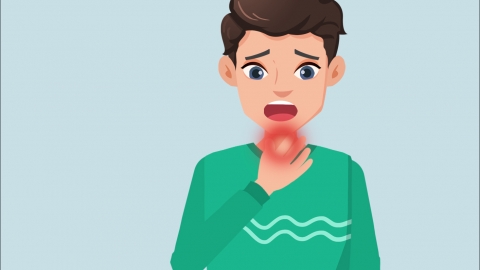What causes dry mouth and dry throat?
Generally, the term "throat" refers to the pharynx. Dry mouth and dry throat may be caused by dehydration, environmental factors, oral candidiasis, Sjögren's syndrome, diabetes, and other conditions. If discomfort occurs, timely medical attention is recommended. Detailed explanations are as follows:

1. Dehydration
Dehydration refers to insufficient body fluids to maintain normal physiological functions. When the body lacks water, the mucous membranes in the mouth and throat may become dry, causing symptoms of dry mouth and dry throat. It is recommended to maintain adequate fluid intake daily, with at least eight glasses of water consumed per day.
2. Environmental Factors
Spending prolonged periods in dry, hot, or poorly ventilated environments can cause rapid evaporation of moisture from the mucous membranes of the mouth and throat, resulting in sensations of dryness. Using a humidifier indoors to increase air humidity and avoiding prolonged exposure to dry environments can help alleviate this condition.
3. Oral Candidiasis
Oral candidiasis may be caused by Candida infection and is commonly seen in individuals with weakened immune systems, those undergoing long-term antibiotic therapy, or individuals with poor oral hygiene. Candida can proliferate in the mouth, damaging the normal mucosal barrier and causing dry mouth and throat. Symptoms may also include white patches on the oral mucosa, pain, or difficulty swallowing. Treatment may involve medications such as nystatin tablets, fluconazole capsules, or compound chlorhexidine mouthwash, as directed by a physician.
4. Sjögren's Syndrome
Sjögren's syndrome is an autoimmune disease that may damage exocrine glands such as the salivary and lacrimal glands, leading to reduced secretory function. Decreased saliva production results in dry mouth and throat, often accompanied by fatigue, low-grade fever, rashes, and other symptoms. It is important to follow medical advice for treatment with medications such as prednisone tablets, cyclophosphamide tablets, and azathioprine tablets to reduce immune responses and relieve symptoms.
5. Diabetes
Diabetes may be caused by genetic factors, unhealthy dietary habits, and other factors. High blood sugar levels lead to excessive fluid loss in the body, causing dry mouth and throat, which may be accompanied by symptoms such as increased thirst, frequent urination, and weight loss. Blood glucose levels should be managed with medications such as metformin hydrochloride tablets, glipizide tablets, or insulin injections, as advised by a physician, to alleviate symptoms.
In daily life, it is important to maintain adequate hydration, avoid prolonged exposure to dry environments, maintain good oral hygiene, undergo regular medical checkups, and promptly detect and treat related diseases.






